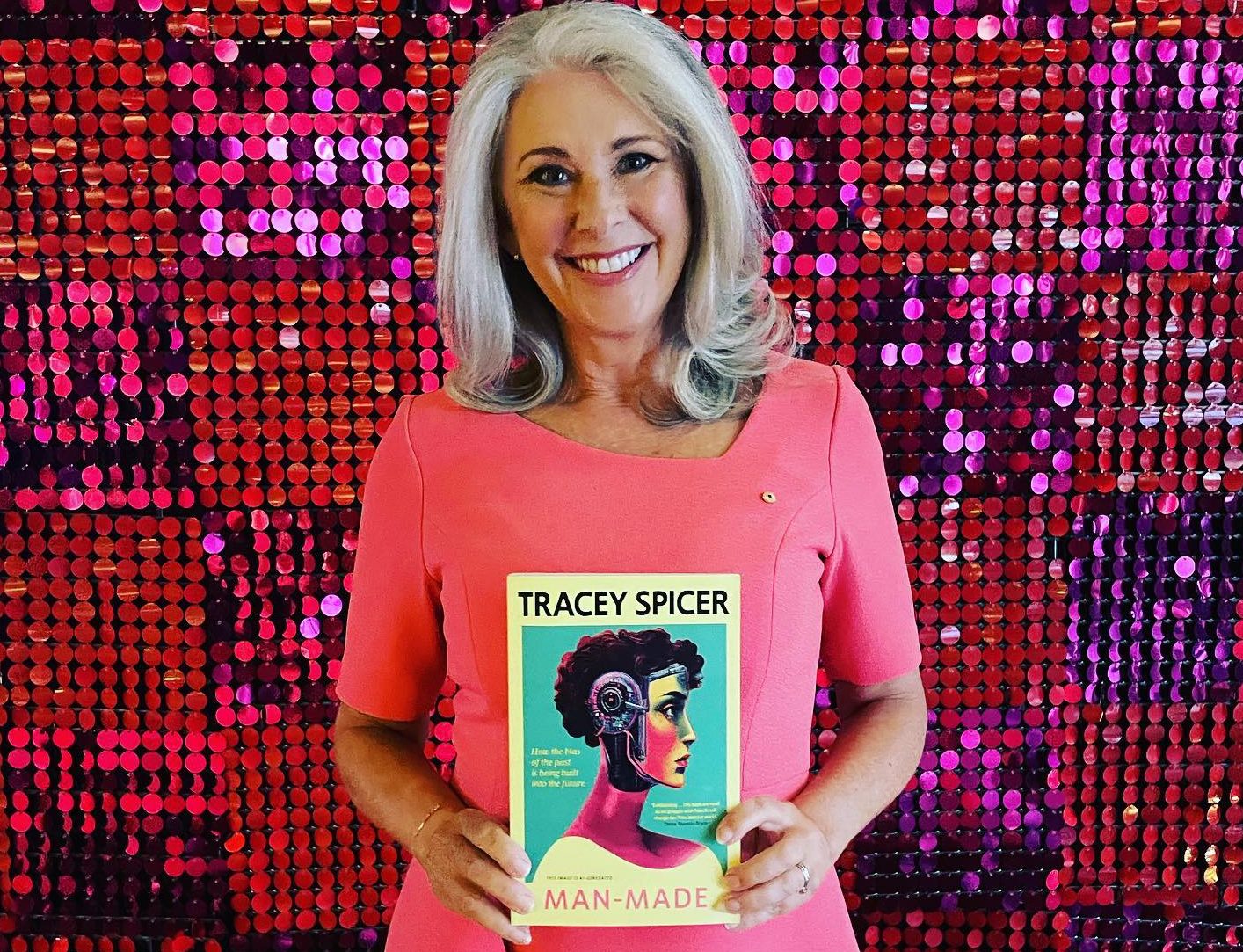
“Sexism and racism and bigotry is being embedded into the machines that will run our futures,” author Tracey Spicer tells reporter BO JEONG.
ON the big TV screen, the naughty boy from an episode of the cartoon series “South Park” was ordering around a servile Amazon “Alexa”.

At home, an 11-year-old boy said: “Mum, I want a robot slave.”
These were the six words uttered by her son that sparked an epiphany for Walkley award-winning journalist Tracey Spicer. She realised her life’s work fighting inequality seemed futile.
It began a quest to uncover who is ultimately responsible for the technology that embeds past biases. It took seven years of interviews and research to get to the launch of her latest book, “Man-Made”.
“I’ve rallied against it over the decades – all of the sexism and racism and bigotry is being embedded into the machines that will run our futures,” she told me at her Canberra book launch at the ANU’s Kambri Cultural Centre.
“This whole idea that women are there to serve people… the chatbots for the home have female voices, the chatbots for business and finance companies have male voices.
“So that’s a classic example of the dichotomy.”
Within 24 hours of the launch, “Man-Made” became the top-selling book on Amazon.
The book has been reviewed by former governor-general Dame Quentin Bryce, who described “Man-Made” as “exhilarating” and “a book we need as we grapple with how AI [artificial intelligence] will change our lives and our world”.
As an ordinary Canberran who loves modern technology and ChatGPT, insights into the book made me open my eyes to the bias embedded within the AI-generated world that often did not go questioned nor answered.
Spicer said a key insight came from interviewing Dr Joan Palmiter Bajorek, who runs an organisation called “Women in Force”, which is within voice technology.
According to Dr Bajorek, big tech was often thought of as “being big”, but most of the companies making the innovations were very small.
“They’re testing out the innovations on their friends who are usually young, white men in Silicon Valley,” said Tracey.
She could see “life-and-death” danger in the technology. There was an automated soap dispenser that’s programmed to work only for white hands. The same technology was being “embedded into self-driving cars”.
“So if [the self-driving car] came up to a pedestrian crossing, they might recognise a white person, but they won’t recognise anyone else, and they could run them over,” she said.
Spicer encouraged people to “talk to their friends, their children, their family about where AI was embedded in their own homes and workplaces” and then try to do what they can to “reduce the bias”.
“For example, you can change the voice of Siri and Alexa to male, or gender neutral. You can play with ChatGPT and make it clear that the robot’s been biased and teach it a better way of behaving,” said Tracey.
Supporting tech companies that were female-led and run by people of colour could bring more diversity and inclusion in technology.
Beyond the work individuals can do, the author is calling on the Australian government to institute the world’s first AI Safety Commissioner.
It follows an idea proposed by the Australian Human Rights Commissioner Edward Santow in 2021, after a three-year study into new technologies.
Spicer said Australia had historically been a testing ground for technology companies and there needed to be boundaries or a “regulatory sandpit” established.
“The responsibility ultimately rests with tech companies,” she said.
“They’ve got to elevate the importance of ethics, instead of just thinking about the almighty dollar because they have people’s lives in their hands.”
Spicer said there was a significance to launching in Canberra, because “this is the heart of Australia”.
“This is where politics happens. This is where decisions are made,” she said.
“As citizens, we have power to make it clear to government members and politicians. So we want them to do something about this.”
The “Man-Made” author said she wasn’t suggesting anything radical or “any kind of revolution”.
“These tech goals are actually setting fire to money by not having more women involved at the get-go.
“Because they will actually end up developing greater things that more people will want – that creates a better society.
“That’s human made, not man made.”
Who can be trusted?
In a world of spin and confusion, there’s never been a more important time to support independent journalism in Canberra.
If you trust our work online and want to enforce the power of independent voices, I invite you to make a small contribution.
Every dollar of support is invested back into our journalism to help keep citynews.com.au strong and free.
Thank you,
Ian Meikle, editor









Leave a Reply